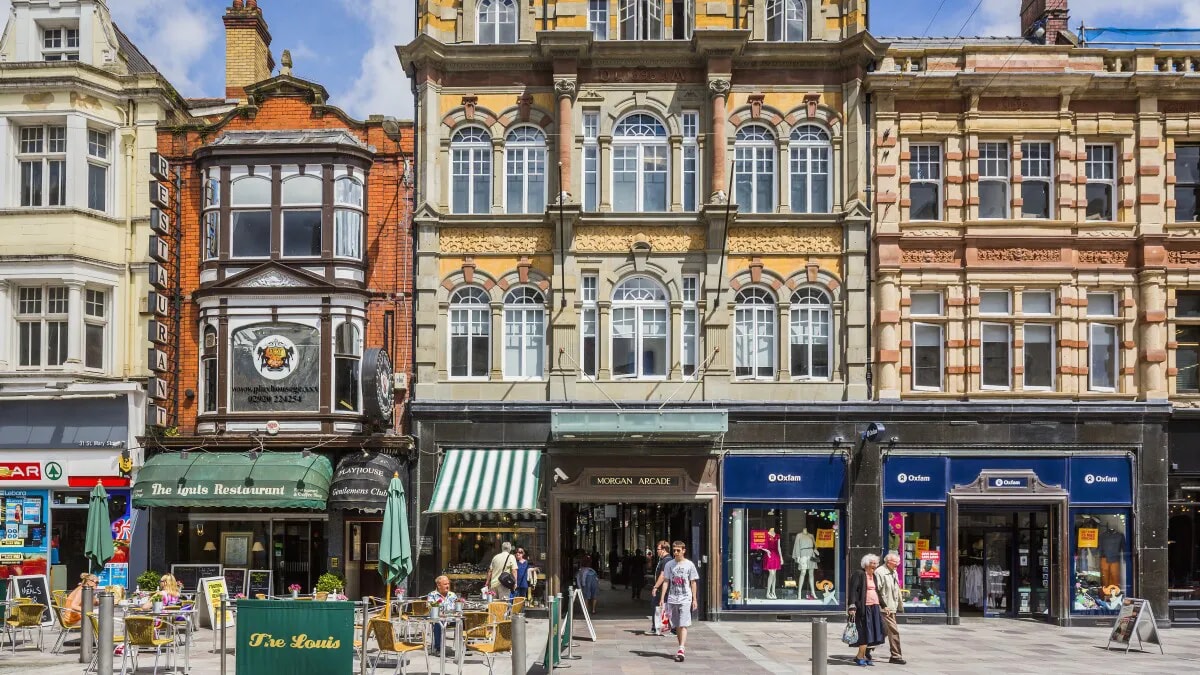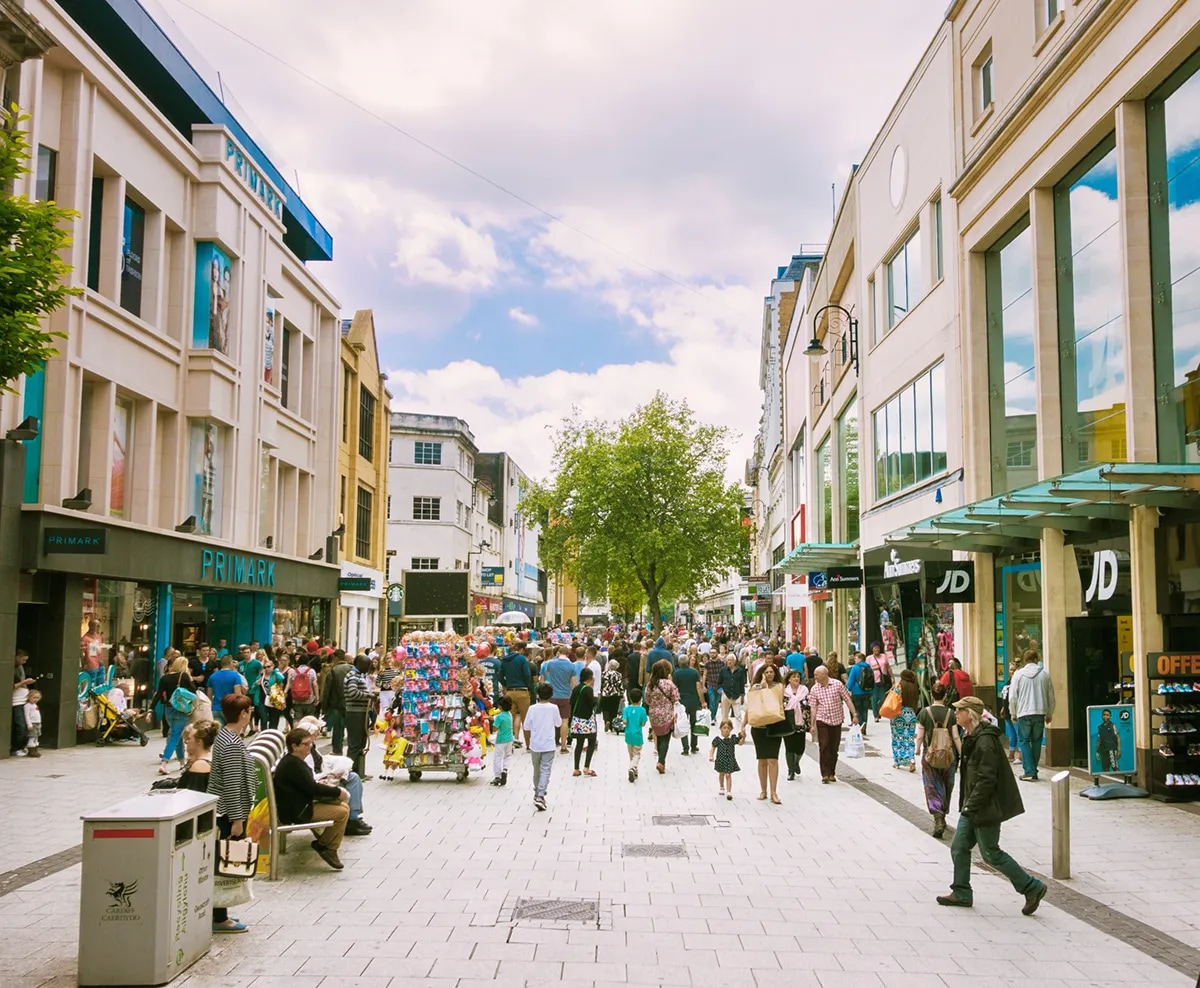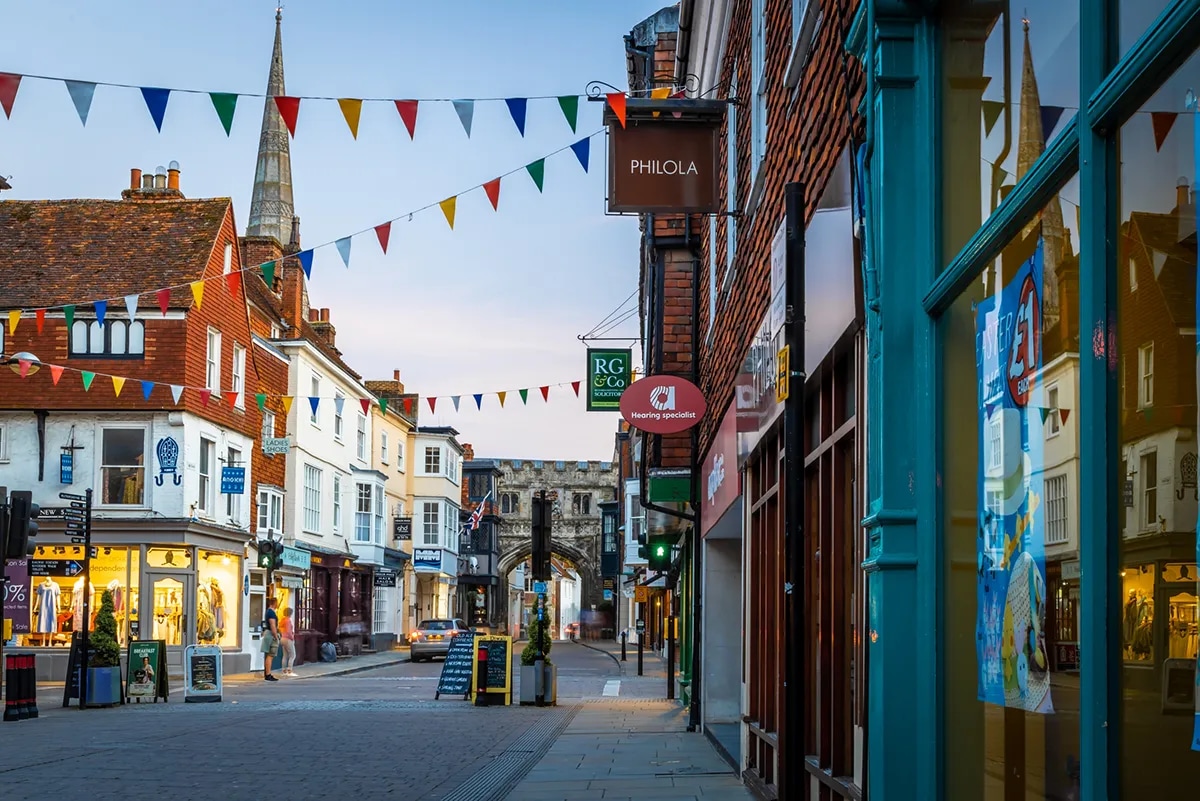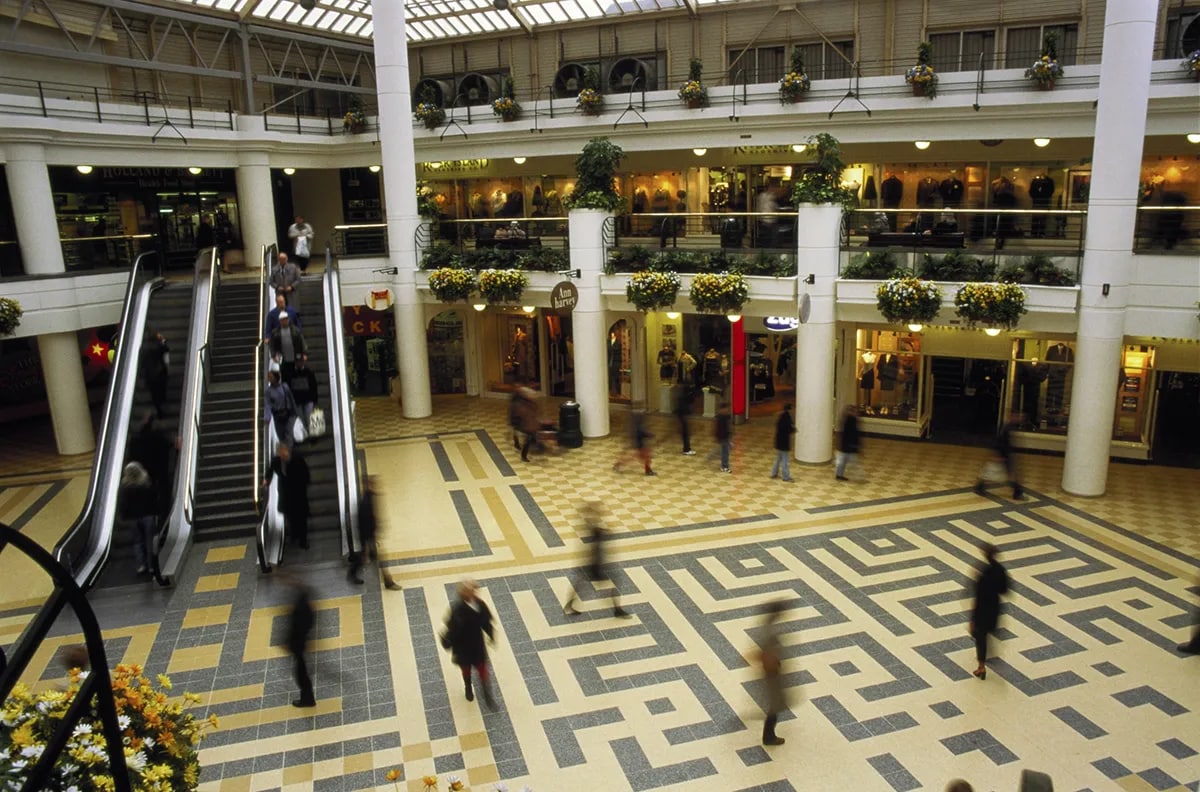High Streets vs Shopping Centres

Although online retail continues to grow in importance for large parts of the business world, footfall is still the main way that most retailers make their money. Finding the best location for your business means choosing somewhere that will not only get your business seen by the most people but puts you in front of your target audience too. That often means choosing between the high street and shopping centres. Here is our guide to deciding which option is right for you.
What is the Difference Between the High Street and a Shopping Centre?
The definition of a high street is the primary place for businesses to locate themselves in a town or city. By being located in a single place, it is easier for shoppers to take care of all of their errands in a single trip and other businesses may benefit from the increased footfall in the area. While a person may head to the high street specifically to buy one item, they may be encouraged to make additional purchases from other businesses as they travel along the street. The number of high streets in the UK peaked in Victorian Britain but has been in decline for much of the 20th century.

A variety of factors have contributed to this decline, with the rise in the number of shopping centres being a particularly important one. A shopping centre is a building or area where multiple different businesses are located, connected by walkways to allow shoppers to move among them. Usually located in large buildings outside of city centres, shoppers often have to travel to them by car. In practice, the line between high streets and shopping centres is not as black and white as these definitions make it seem. Many city centres have moved away from having a single high street to shopping districts that have a mix of streets and larger shopping centres.

The Benefits of the High Street
For smaller towns, it is likely that the high street is still an active location for people looking to shop and socialise. Many towns now have larger shopping centres and retail parks within driving distance, but shoppers are still likely to prioritise local convenience if they think they can find what they need.

For retail and other kinds of businesses, there are a number of potential advantages to being located on the high street:
- Good footfall is to be expected - and could remain steady all week due to the fact people live and work nearby. Shopping centres, on the other hand, may see the majority of visitors at weekends.
- High streets tend to have good links to public transport, which can lead to increased footfall from people who can’t or don’t want to drive.
- High streets still bring some prestige - which is why independent shops tend to find more success there than among the big brands of a shopping centre.
- If there are any historical landmarks or other attractions, they can help to pull increased numbers of visitors in.
- Many shoppers still prefer the idea of spending the day shopping and having a meal on a high street rather than a shopping centre.
The downsides of trying to secure a prime location on a high street is likely to be higher rents, less choice and restrictions in terms of the spaces available to you.
The Benefits of Shopping Centres

Shopping centres are big destinations and the out of town locations mean that shoppers will tend to spend a significant amount of time there on one shopping trip. This could provide a range of potential benefits:
- The proximity of some of the biggest, most popular, and recognised brands means that you are likely to see steady amounts of footfall.
- Shopping centres offer convenience - for shoppers as well as you and your staff. There will always be parking and lots of places to eat.
- You are likely to find more flexibility in terms of the space available.
- Rents also tend to be lower at shopping centres compared to high streets.
As mentioned earlier, if you are an independent business you need to consider carefully whether a shopping centre is right for you. If you specialise in a particular product range, you need to make sure that there isn’t too much competition from larger brands.
FAQ
Which is right for my business?
The decision between setting up shop on the high street or at your nearest shopping centre is an important one and could affect the ability of your business to operate. Here are some questions to help you decide:
Do you want like-minded businesses around you?
If you are an independent business, you may want to surround yourself with other independent shops instead of more established corporate brands.
What kind of competition can you deal with?
If you are a boutique brand, can you handle being undercut by bigger competitors selling discount products? If not, you may want to prioritise the high street over a shopping centre.
Do you need customer parking?
If you sell products that can be carried around for a while, then the lack of parking offered by the high street shouldn’t be an issue. But it might be if you sell heavier, or more delicate ones.
Do you require a specialised layout?
You may find that your options are too limited on the high street.
Do you have money for ongoing building maintenance?
High street properties are likely to be older and may need some attention, whereas your retail space in the shopping centre will be relatively new.
Is the location convenient for you?
Will it be easier for you to drive to an out of town shopping centre every day rather than travelling into the centre of your town or city?
This article was originally published on Realla on 28 May 2020.
